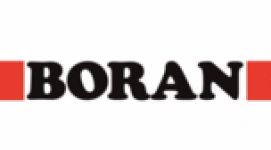
VOCATIONAL SCHOOL
Department of Real Estate Management (Turkish)
MTOI 230 | Course Introduction and Application Information
| Course Name |
Consumer Behavior
|
|
Code
|
Semester
|
Theory
(hour/week) |
Application/Lab
(hour/week) |
Local Credits
|
ECTS
|
|
MTOI 230
|
Fall/Spring
|
3
|
0
|
3
|
5
|
| Prerequisites |
None
|
|||||
| Course Language |
Turkish
|
|||||
| Course Type |
Elective
|
|||||
| Course Level |
Short Cycle
|
|||||
| Mode of Delivery | - | |||||
| Teaching Methods and Techniques of the Course | Group WorkLecture / Presentation | |||||
| Course Coordinator | - | |||||
| Course Lecturer(s) | ||||||
| Assistant(s) | - | |||||
| Course Objectives | The aim of this course is to gain an understanding regarding to the concepts and theories of consumer behavior. The aim is to inform students about main internal and external factors affecting the consumer buying behaviour and decisions. |
| Learning Outcomes |
The students who succeeded in this course;
|
| Course Description | The role of consumer behavior in marketing; consumer psychology, neuroscience, anthropology and sociology; consumer buying behavior and digital consumption and markets will be the main topics of the course. |
|
|
Core Courses | |
| Major Area Courses | ||
| Supportive Courses | ||
| Media and Management Skills Courses | ||
| Transferable Skill Courses |
WEEKLY SUBJECTS AND RELATED PREPARATION STUDIES
| Week | Subjects | Related Preparation |
| 1 | Introduction to the course | Lecture Notes |
| 2 | Consumption society and consumer culture | |
| 3 | Consumer behavior theory | |
| 4 | Consumer Psychology: Perception | Koç, E. (2012). Algılama. In Tüketici davranışı ve pazarlama stratejileri: Global ve yerel yaklaşım. İstanbul: Seçkin. |
| 5 | Consumer Psychology: Learning & Memory | Koç, E. (2012). Öğrenme ve hafıza. In Tüketici davranışı ve pazarlama stratejileri: Global ve yerel yaklaşım. İstanbul: Seçkin. |
| 6 | Consumer Psychology: Motivation & Involvement | Koç, E. (2012). Motivasyon ve İlgilenim. In Tüketici davranışı ve pazarlama stratejileri: Global ve yerel yaklaşım. İstanbul: Seçkin. |
| 7 | Consumer Psychology: Attitudes | Koç, E. (2012). Tutumlar. In Tüketici davranışı ve pazarlama stratejileri: Global ve yerel yaklaşım. İstanbul: Seçkin. |
| 8 | Midterm Exam | |
| 9 | Consumer Psychology: Self and Personality | Koç, E. (2012). Benlik ve kişilik. In Tüketici davranışı ve pazarlama stratejileri: Global ve yerel yaklaşım. İstanbul: Seçkin. |
| 10 | Consumer Neuroscience | Kılınç, O. E., & Yavuz, Ö. (2016). “Nöro pazarlama”ya giriş. İstanbul: Ortak İleişim. |
| 11 | Consumer anthropology: Values, lifestyles and culture | Kılınç, O. E., & Yavuz, Ö. (2016). “Nöro pazarlama”ya giriş. İstanbul: Ortak İleişim. |
| 12 | Consumer Sociology: Reference Groups, Family & Gender | Koç, E. (2012). Değerler, yaşam biçimleri ve kültür. In Tüketici davranışı ve pazarlama stratejileri: Global ve yerel yaklaşım. İstanbul: Seçkin. |
| 13 | Consumer purchase decision process | |
| 14 | Student presentations | |
| 15 | Review of the semester | |
| 16 | Final Exam |
| Course Notes/Textbooks | Koç, E. (2012). Tüketici davranışı ve pazarlama stratejileri: Global ve yerel yaklaşım. İstanbul: Seçkin. |
| Suggested Readings/Materials | Kılınç, O. E., & Yavuz, Ö. (2016). “Nöro pazarlama”ya giriş. İstanbul: Ortak İleişim. |
EVALUATION SYSTEM
| Semester Activities | Number | Weigthing |
| Participation |
1
|
10
|
| Laboratory / Application | ||
| Field Work | ||
| Quizzes / Studio Critiques | ||
| Portfolio | ||
| Homework / Assignments | ||
| Presentation / Jury |
1
|
20
|
| Project | ||
| Seminar / Workshop | ||
| Oral Exams | ||
| Midterm |
1
|
30
|
| Final Exam |
1
|
40
|
| Total |
| Weighting of Semester Activities on the Final Grade |
3
|
60
|
| Weighting of End-of-Semester Activities on the Final Grade |
1
|
40
|
| Total |
ECTS / WORKLOAD TABLE
| Semester Activities | Number | Duration (Hours) | Workload |
|---|---|---|---|
| Theoretical Course Hours (Including exam week: 16 x total hours) |
16
|
3
|
48
|
| Laboratory / Application Hours (Including exam week: '.16.' x total hours) |
16
|
0
|
|
| Study Hours Out of Class |
15
|
3
|
45
|
| Field Work |
0
|
||
| Quizzes / Studio Critiques |
0
|
||
| Portfolio |
0
|
||
| Homework / Assignments |
0
|
||
| Presentation / Jury |
1
|
15
|
15
|
| Project |
0
|
||
| Seminar / Workshop |
0
|
||
| Oral Exam |
0
|
||
| Midterms |
1
|
20
|
20
|
| Final Exam |
1
|
22
|
22
|
| Total |
150
|
COURSE LEARNING OUTCOMES AND PROGRAM QUALIFICATIONS RELATIONSHIP
|
#
|
Program Competencies/Outcomes |
* Contribution Level
|
||||
|
1
|
2
|
3
|
4
|
5
|
||
| 1 | To have the knowledge and skills on real estate and its management. |
|||||
| 2 | To follow recent developments about real estate and real estate management. |
|||||
| 3 | To be able take part in team work and have the characteristics of a leader. |
|||||
| 4 | To have professional and ethical responsibility. |
|||||
| 5 | To have the expertise in technological developments in real estate and real estate management field and try to improve it constantly. |
|||||
| 6 | To be aware of the importance for lifelong learning; follow scientific and technological developments. |
|||||
| 7 | To have effective verbal and written communication skills. |
|||||
| 8 | To know and apply the professional ethical codes of real estate and real estate management and auditing in business life and act according to social, scientific and ethical values under any circumstances such as data collection, evaluation, announcing and practicing. |
|||||
| 9 | To have the ability to work effectively in multi-disciplinary areas and apply them in the work environment. |
|||||
| 10 | To be aware of the sales organizations, sales management and sales techniquesand manage the sales process and solve the possible problems that may arise. |
|||||
*1 Lowest, 2 Low, 3 Average, 4 High, 5 Highest


